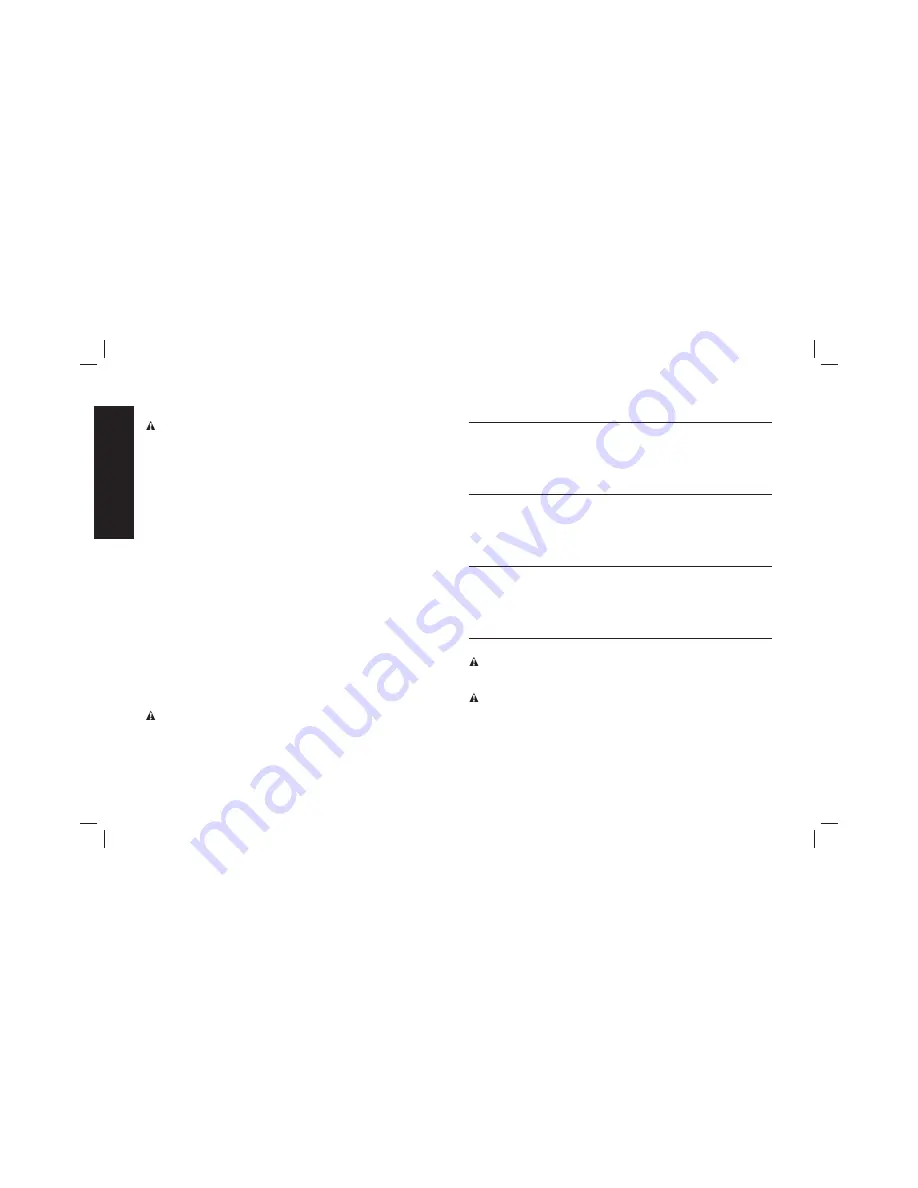
Cold Weather Operation
WARNING:
Read the section titled
Important Safety Instructions
at the beginning of this manual. Always wear eye and ear protection
when operating this tool. Keep the stapler pointed away from yourself
and others. For safe operation, complete the following procedures
and checks before each use of the stapler.
When operating tools at temperatures below freezing, complete
preparation procedures outlined above and follow the directions
below.
1. Make sure compressor tanks have been properly drained prior to
use. Always drain the compressor tanks at least once daily while
using the stapler. This is especially important in cold weather
because any moisture in the air in the tanks will condense in the
cold temperature.
2. Keep the tool as warm as possible prior to use.
3. Lower air pressure to 80 psi or less.
4. Actuate the tool 5 or 6 times into scrap lumber to lubricate o-rings.
5. Turn pressure up to operating level (not to exceed 120 psi) and
use tool as normal.
Hot Weather Operation
Tool should operate normally. However, keep tool out of direct sunlight
as excessive heat can damage bumpers, o-rings and other rubber
parts.
MAINTENANCE
WARNING:
Disconnect air line from tool and remove fasteners
from magazine before making adjustments or personal injury may
result.
Daily Maintenance Chart
ACTION
Drain compressor tanks and hoses daily
WHY
Prevents accumulation of moisture in compressor and
stapler
HOW
Open petcocks or other drain valves on compressor
tanks. Allow any accumulated water to drain from
hoses
ACTION
Clean magazine, pusher, and contact trip mechanism
WHY
Permits smooth operation, reduces wear, and
prevents jams
HOW
Blow clean with compressed air. The use of oils or
solvents is not recommended as they tend to attract
debris
ACTION
Before each use, check to ensure all screws, nuts and
fasteners are tight and undamaged
WHY
Prevents jams, leaks and premature failure of tool
parts
HOW
Tighten loose screws or other fasteners using the
appropriate hex wrench or screwdriver
Cleaning
WARNING:
Blow dirt and dust out of all air vents with clean, dry air
at least once a week. To minimize the risk of eye injury, always wear
ANSI Z87.1 approved eye protection when performing this.
WARNING:
Never use solvents or other harsh chemicals for
cleaning the non-metallic parts of the tool. These chemicals may
weaken the plastic materials used in these parts. Use a cloth
dampened only with water and mild soap. Never let any liquid get
inside the tool; never immerse any part of the tool into a liquid.
English
10














